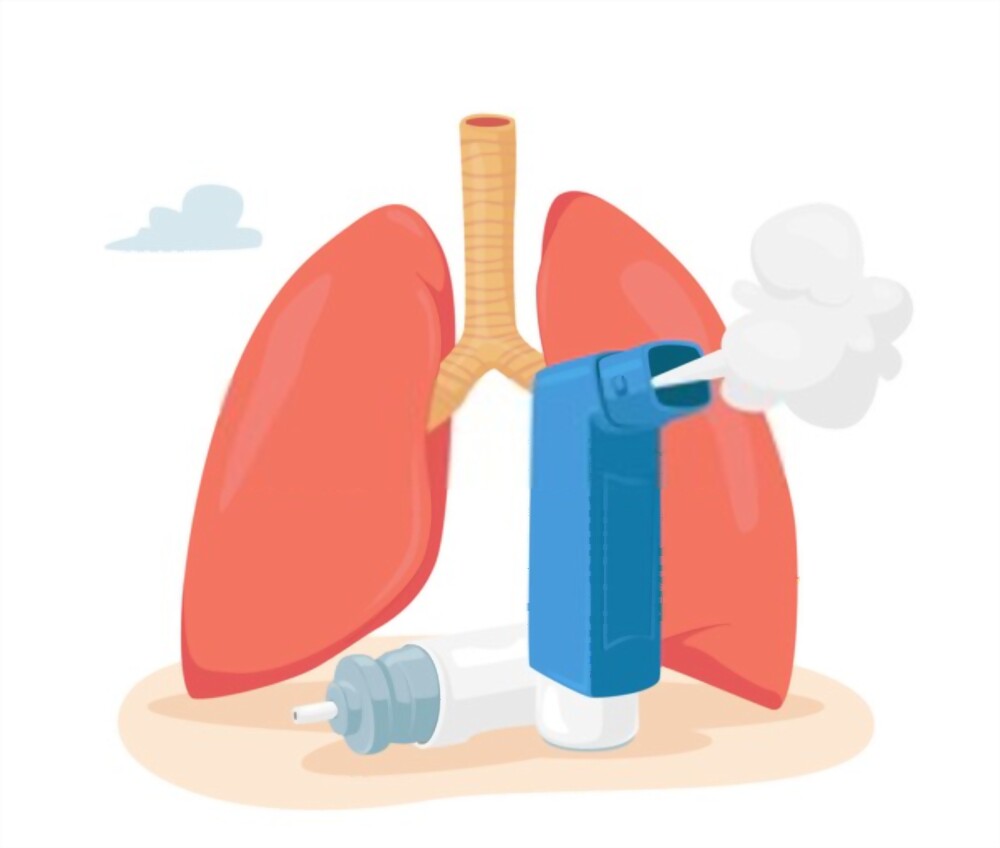Introduction-
Asthma is a disorder of the respiratory system. The airways contract too much and spontaneously in response to triggering stimuli. This airway hyperresponsiveness is accompanied by irritability of the airways, thus causing increased mucus secretion.
The environmental factors interact with the airways to cause inflammation, and smooth muscle contraction. However, no single genetic or environmental factor is accountable.
Causes-
Inflammation plays a major role in asthma. Also, Genetic factors along with environmental triggers are the major cause.
How does airway inflammation occur?
This is a multicellular process involving mainly eosinophils, neutrophils, CD4+T lymphocytes and mast cells.The inflammatory process occurs in the conducting airways but as the disease progresses, smaller airways and in some cases adjacent alveoli are also involved.
Non allergic asthma-
Although the majority of asthma has its onset in early childhood and occur due to atopy, there are forms of asthma that appear to be independent of atopy. These non allergic forms probably occur due to local IgE mechanisms. Some forms of late-onset asthma have an occupational cause due to sensitization to chemicals in the workplace.
Risk factors for asthma-
- Familial presence of asthma
- Presence of allergeic conditions such as rhinitis
- Urbanisation
- Lifestyle factors
- low birth weight and premature babies
- Exposure t tobacco smoke
- Recurrent viral respiratory infections
- Exposure to environmental irritants and outdoor air pollution
- Occupational exposure to dust, chemicals and fumes.
- Overweight or presence of obesity in childhood.
Symptoms-

The classical symptoms are dyspnea, wheeze, chest tightness and cough. These symptoms can however be absent for long periods of time, and are often triggered by stimulants.
The diagnosis is clinical. The following Features increase the probability of asthma-
- (More than one )wheeze, cough, difficulty breathing and chest tightness
- Episodic symptoms that are worse at night and in the early morning
- Symptoms that occur in response to certain triggers, e.g exercise allergen exposure, cold air
- Personal history of an atopic disorder or family history of an atopic (allergic) disorder and/or asthma
- Widespread wheeze heard on auscultation.
FEV1/FEV ratio of less than 0.7 confirms obstruction.
When does asthma become life threatening?
In the presence of the following symptoms, consult your doctor at the earliest.
- Difficulty to catch a breath
- Difficulty talking
- Cyanosis of skin
- Nasal flaring
- constant wheeze
Breathing techniques to help with asthma-
These can be helpful in mild to moderate cases. They help in stabilising respiratory rate and therefore help in increasing expiratory airflow.
Techniques involve-
- Deep Breathing (Diaphragmatic breathing through use of abdominal muscles)
- Nasal breathing
- Relaxation
- pursed lip breathing
Prognosis-
Asthma is a disease with increasing severity of symptoms over time. The prognosis thus depends on the degree of control with treatment. Some patients can be symptom-free for long periods, however, some may develop progressive loss of lung function.
Poor lifestyle leads to airway remodeling, thus causing disabling chronic symptoms.
Also read-https://vcurehealthcare.com/causes-and-symptoms-of-parkinsons-disease/





